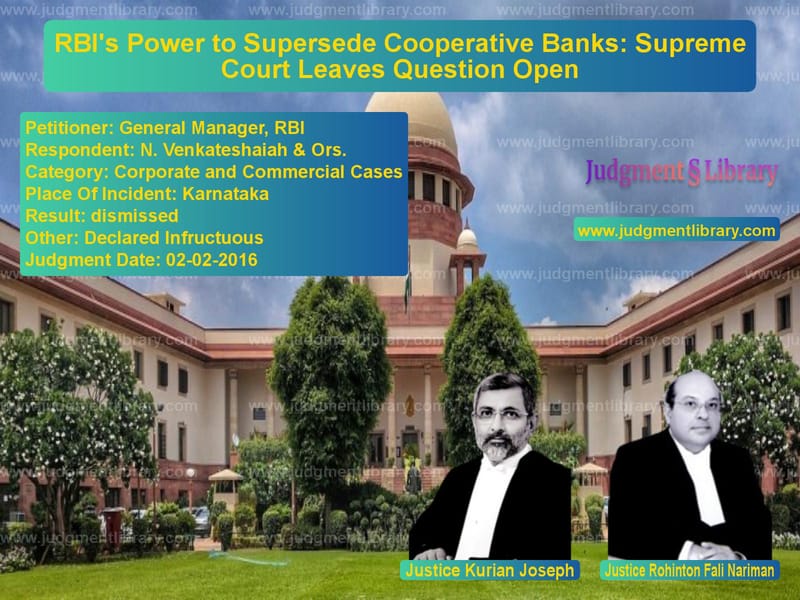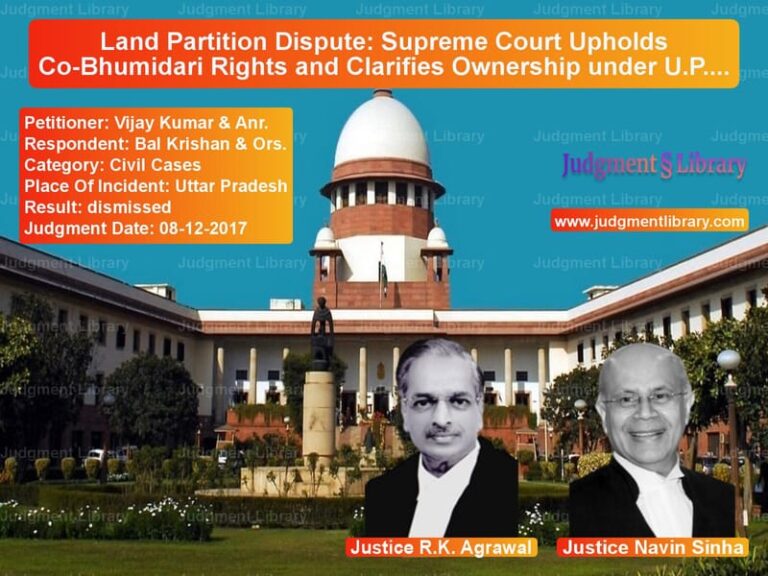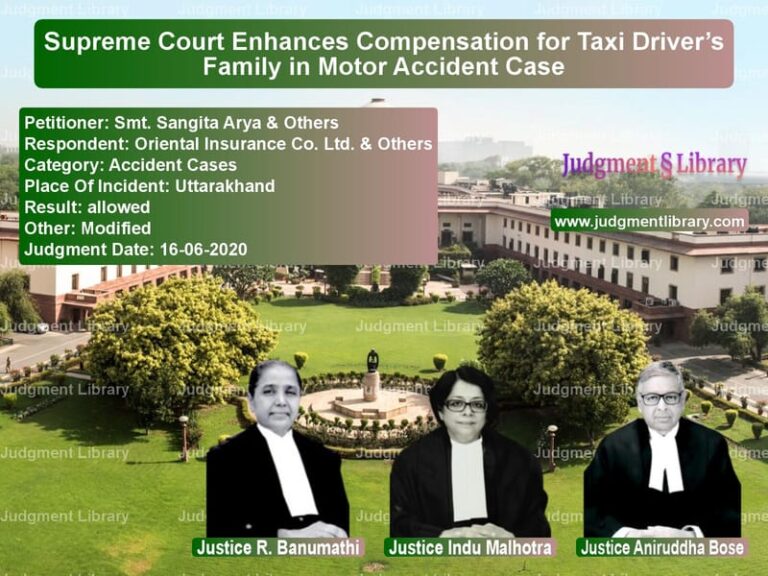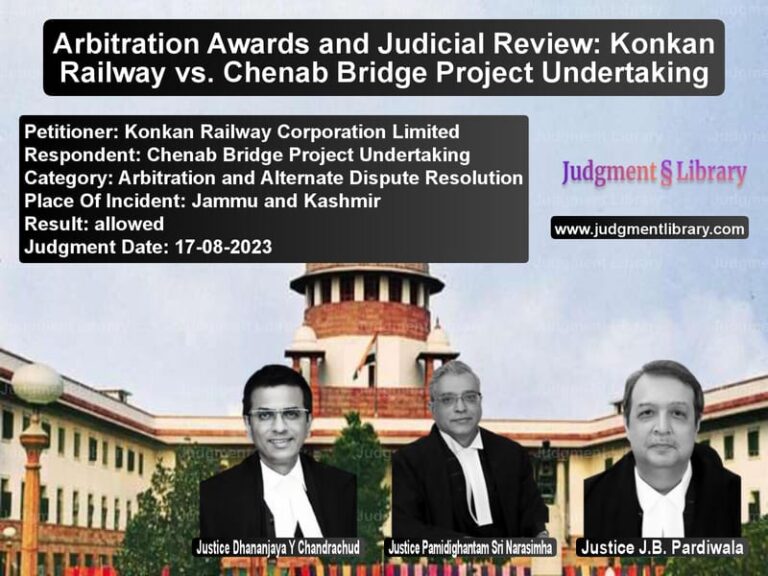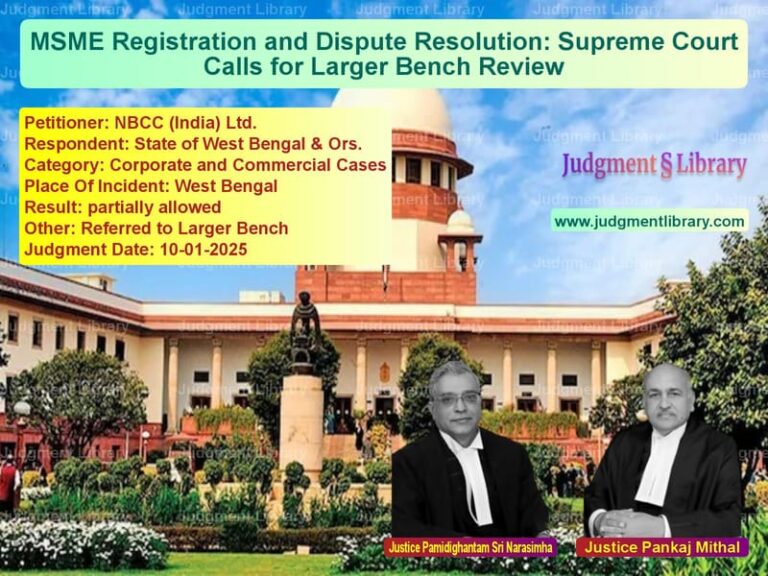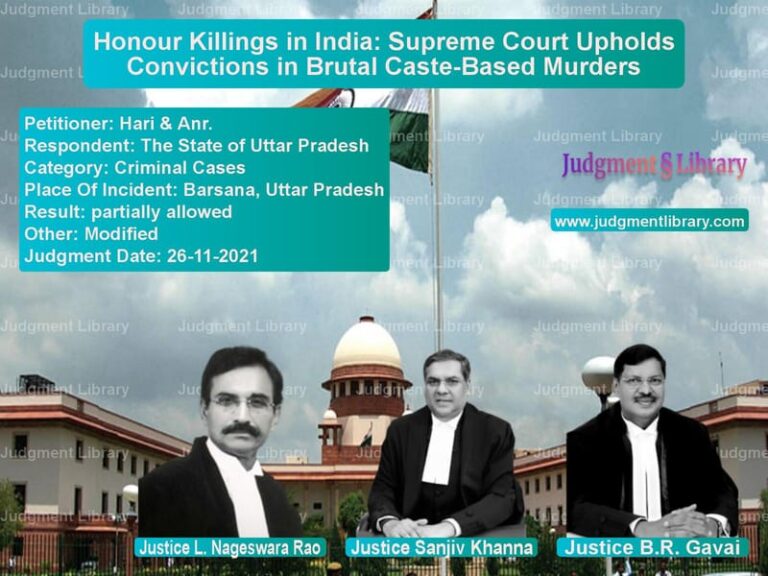RBI’s Power to Supersede Cooperative Banks: Supreme Court Leaves Question Open
The case of General Manager, RBI vs. N. Venkateshaiah & Ors. revolves around the Reserve Bank of India’s (RBI) authority to supersede the managing committees of cooperative banks in Karnataka. The Supreme Court addressed whether a pre-decisional hearing is required before RBI directs the removal of a cooperative bank’s managing committee under Section 30(5) of the Karnataka Co-operative Societies Act, 1959.
Background of the Case
The dispute arose from RBI’s intervention in two cooperative banks in Karnataka:
- Grain Merchants Co-operative Bank
- Kannika Parameshwari Co-operative Bank
The RBI issued a written requisition to the Registrar of Cooperative Societies, directing the supersession of the managing committees of both banks under Section 30(5) of the Karnataka Co-operative Societies Act, 1959. This provision states:
“Notwithstanding anything contained in this Act, the Registrar shall, in the case of a co-operative bank, if so required in writing by the Reserve Bank of India in public interest or for preventing the affairs of the co-operative bank being conducted in a manner detrimental to the interest of the depositors or for securing the proper management of the co-operative bank, by order in writing, remove the committee of that co-operative bank and appoint an administrator to manage the affairs of the co-operative bank for such period as may, from time to time, be specified by the Reserve Bank of India.”
Based on this statutory provision, the Registrar removed the committees and appointed administrators to run the banks.
Legal Challenge in the High Court
The managing committees challenged the RBI’s action in the Karnataka High Court, arguing that:
- RBI did not provide the affected banks an opportunity for a pre-decisional hearing before ordering their supersession.
- Due process was violated, as RBI’s decision directly impacted the banks’ management without giving them a chance to present their defense.
The Karnataka High Court, in its judgment dated April 20, 2010, ruled in favor of the managing committees. The court held that:
- Before issuing a supersession order, RBI must provide a pre-decisional hearing to the affected bank’s management.
- The principles of natural justice require that those affected by an administrative order must be given an opportunity to be heard.
The High Court’s ruling effectively limited RBI’s powers under Section 30(5) by introducing an additional procedural requirement.
Arguments Before the Supreme Court
The RBI challenged the High Court’s ruling before the Supreme Court, arguing that:
- The statute grants RBI absolute authority to supersede the management of cooperative banks when it deems it necessary for protecting depositors and ensuring proper management.
- Section 30(5) of the Karnataka Co-operative Societies Act does not mention any requirement for a pre-decisional hearing.
- Requiring a hearing before supersession could lead to unnecessary delays, which might harm the interests of depositors.
The respondents (affected managing committees) countered that:
- Decisions impacting elected managing committees should not be taken without hearing them.
- The principles of natural justice demand that those being removed from office must be given a fair opportunity to defend themselves.
- The High Court correctly interpreted the law to ensure fairness in administrative actions.
Supreme Court’s Judgment
On February 2, 2016, the Supreme Court, comprising Justice Kurian Joseph and Justice Rohinton Fali Nariman, decided to leave the question open for determination in a future case.
The Court observed that:
- During the pendency of the appeal, elections had been conducted twice for the managing committees of both banks.
- Since the issue had become academic (i.e., no longer relevant to the specific case), there was no immediate need to resolve the legal question.
- However, the Court recognized the importance of the issue and left it open for a future case where the matter could be appropriately examined.
The Supreme Court also clarified that the Karnataka High Court’s judgment should not be treated as a binding precedent on the question of pre-decisional hearings in RBI-directed bank supersessions.
Thus, the Court disposed of the appeals without making a definitive ruling on the core legal issue.
Key Legal Takeaways
- RBI’s Authority Under Section 30(5): The RBI can direct the supersession of cooperative bank management if it deems it necessary for protecting depositors’ interests.
- Pre-Decisional Hearing Issue Left Open: The Supreme Court did not settle whether RBI must grant a hearing before issuing a supersession order.
- Judicial Precedent Restricted: The Karnataka High Court’s decision is not to be treated as binding precedent on this matter.
- Impact of Changed Circumstances: Since elections had been conducted, the Supreme Court saw no need to issue a ruling on an issue that had become academic.
- Future Cases May Decide: A definitive ruling on whether a pre-decisional hearing is required under Section 30(5) will likely emerge in future litigation.
Conclusion
The Supreme Court’s approach in this case highlights judicial prudence in handling legal questions that become irrelevant due to subsequent developments. While the issue of whether RBI must provide a pre-decisional hearing remains unresolved, the case establishes that RBI has significant authority over cooperative banks and that courts may scrutinize such powers in future disputes.
Don’t miss out on the full details! Download the complete judgment in PDF format below and gain valuable insights instantly!
Download Judgment: General Manager, RBI vs N. Venkateshaiah & O Supreme Court of India Judgment Dated 02-02-2016-1741852452826.pdf
Direct Downlaod Judgment: Direct downlaod this Judgment
See all petitions in Bankruptcy and Insolvency
See all petitions in Corporate Compliance
See all petitions in Company Law
See all petitions in Judgment by Kurian Joseph
See all petitions in Judgment by Rohinton Fali Nariman
See all petitions in dismissed
See all petitions in Declared Infructuous
See all petitions in supreme court of India judgments February 2016
See all petitions in 2016 judgments
See all posts in Corporate and Commercial Cases Category
See all allowed petitions in Corporate and Commercial Cases Category
See all Dismissed petitions in Corporate and Commercial Cases Category
See all partially allowed petitions in Corporate and Commercial Cases Category

